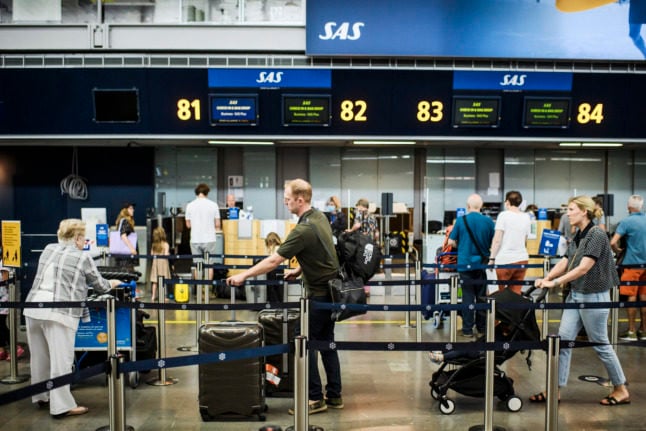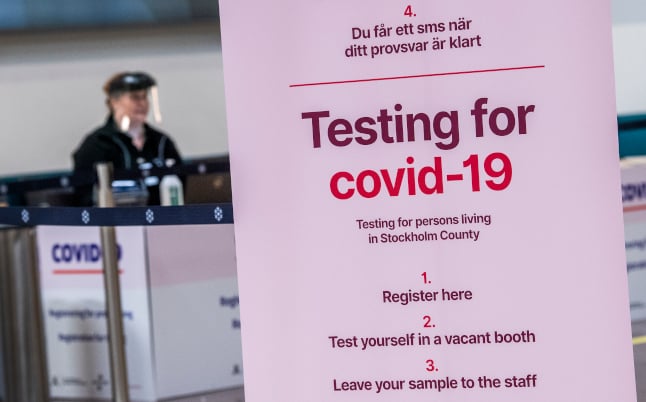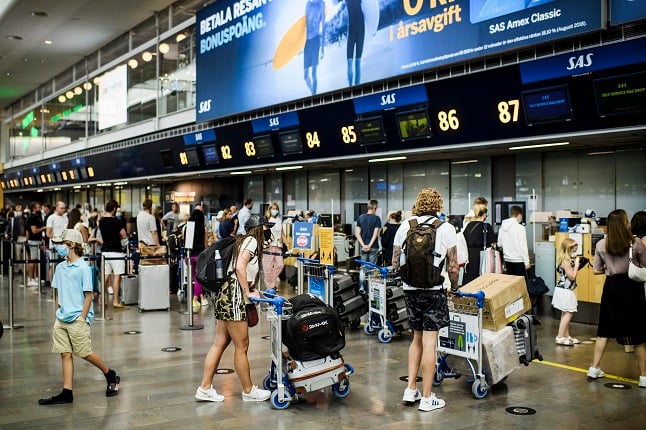How safe is it to travel to Sweden right now?
Any international travel carries some risk, and Sweden is no exception.
At the time of publication, Sweden’s infection and hospitalisation rates were very low compared to previously, with 23 people in intensive care for Covid-19 (during the three peaks of the pandemic in Sweden this figure has regularly topped 300 and on some occasions even been higher than 500), and 33 cases per 100,000 inhabitants reported over the last 14 days (during the peaks this number was regularly over 700).
But that doesn’t mean the danger is over, with some regions including Stockholm showing recent signs of an upturn in cases again.
From which countries can I travel to Sweden?
If you are travelling to Sweden from Denmark, Finland, Iceland or Norway, there are no entry restrictions in place.
From the rest of the EU and EEA, you can travel to Sweden for any purpose, but you need to show a negative Covid-19 test or an EU Covid certificate showing proof of vaccination. This currently applies until at least August 31st.
There is currently a ban in place on travel to Sweden from most non-EU countries (this includes the UK). People travelling from certain countries, decided at the EU level, are exempt. As of July 26th, these include Albania, Armenia, Australia, Azerbaijan, Bosnia and Herzegovina, Brunei, Canada, Hong Kong, Israel, Japan, Jordan, Kosovo, Lebanon, Macao, Montenegro, North Macedonia, New Zealand, Qatar, Republic of Moldova, Saudi Arabia, Serbia, Singapore, South Korea, Taiwan, Ukraine or the US. You still need to show a negative Covid-19 test if you travel from one of these countries. This currently applies until at least August 31st.
In order to travel to Sweden from a non-EU country that’s not on that list, you need to fall into an exempt category (which includes for example being a Swedish or EU/EEA citizen, if you live in Sweden, or if you are travelling for certain purposes including urgent family reasons and vital work) and you must also show a negative Covid-19 test result (although there are exceptions from this requirement too). This currently applies until at least August 31st.

Travellers wait to board a plane at Arlanda airport. Photo: Erik Simander/TT
Has Sweden made exemptions to its entry bans for fully vaccinated people?
No, proof of vaccination is not grounds for exemption from an entry ban.
If you are travelling from an EU/EEA country, you can show proof of vaccination instead of a negative Covid-19 test result, if you received your first dose at least two weeks before arrival in Sweden.
If you are travelling from outside the EU, proof of vaccination is not accepted as an alternative to a negative test result, and it is not grounds to be allowed into the country if you are not in an exempt category.
Has Sweden made exemptions to its entry bans for people visiting family in Sweden?
If you want to travel to Sweden from a country that is outside the EU/EEA and not on the exempt list above – for example if you are travelling from India, South Africa, the UK or many other non-EU countries – you need to prove that you are in a category that is exempt from the entry ban. That can include urgent family reasons, including to attend a childbirth, and it can include parents who need to travel to be with minor children or people who are travelling to live with their spouse or long-term partner. But it does not include parents who wish to visit their adult children for non-urgent reasons.
In any case, a decision on whether you can enter will be made at the Swedish border and you cannot get an exemption granted in advance. This means it can be difficult to know what border officers will decide in your individual case.
What restrictions will be in place in Sweden this summer?
Many of Sweden’s restrictions for private individuals now are not legally enforced (but not considered optional). That includes keeping a distance from others; meeting people outside rather than inside if possible and avoiding large gatherings; staying at home and isolating if you develop symptoms consistent with Covid-19; and avoiding places where there is a risk of crowding.
There are limits on the numbers of attendees at public events, which vary depending on whether the event is indoors or outdoors and seated or non-seated. And at restaurants and events, organisers should ensure distance between different groups as well as good possibilities for hand-washing and keeping a distance in places like queues, toilets and entrances.
There is no national requirement or recommendation to wear a face mask in any situation, but of course you still can do to reduce your risk of catching or spreading the infection.
When it comes to travel, you should use private means of transport (like a car or cycling) if you can, and opt for transport where you can book an assigned seat over those where you can’t, as well as making sure you have a plan of how you would isolate and get home without coming into contact with others in case you fall ill while travelling.
What tests do I need for travel to Sweden?
The test can be either an antigen or PCR test, no older than 48 hours if coming from a non-EU/EEA country and no more than 72 hours old if coming from within the EU/EEA (measured from the time you cross the border, so factor in any possible delays).
Some people are exempted from the test requirement, including Swedish citizens and people who live in Sweden.

A Covid testing facility for arrivals at Stockholm’s Arlanda Airport. Photo: Claudio Bresciani/TT
Do I need to quarantine on arrival in Sweden?
If you are travelling from within the EU/EEA or a country on the “exempt” list the answer is no, as long as you do not have any symptoms. You don’t have to self-isolate completely, although Swedish public health guidance is that after arriving in Sweden from any country outside the Nordics, you should be “careful” about who you meet, avoid meeting risk groups, keep a physical distance to other people and pay special attention to possible symptoms.
If you are travelling from a non-EU country not on the exempt list, you are supposed to self-isolate (avoid all contact with other people) for seven days after your arrival, regardless of the results of your Covid-19 tests (see below). This is not legally enforced. If you are fully vaccinated and received your second dose at least two weeks before arriving in Sweden, you are exempt from this recommendation.
Do I need to take a test on arrival in Sweden?
It’s not legally enforced, but if you arrive in Sweden from any country outside the Nordics, you are supposed to take a test as soon as possible after arriving if you did not take one before your journey. In addition, if you arrive from a country outside the EU/EEA that’s not on the exempt list above, you should take a second test on the fifth day after arrival. These recommendations are currently in place until at least August 31st.
If you are fully vaccinated and received your second dose at least three weeks before arriving in Sweden, you are exempt from this recommendation (but should still get tested if you develop symptoms). Note the different timespan for the exemption to the testing recommendation and the isolation recommendation.
What do I do if I develop symptoms in Sweden?
First, you should book a test, which is free if you have symptoms. Look up the instructions for how to book a test (which should be free) the region where you are on national healthcare website 1177.se. You should isolate until you get the results of your test, and if the test is positive, you will be given instructions on how to continue isolating to protect others.
It should be noted that if you suspect you may have a disease that is classified as “dangerous to the public”, such as Covid-19, Sweden’s communicable disease laws mandate that you get tested and take steps not to spread the virus to others.
How do I get a test in Sweden for the trip home?
In Sweden, tests and travel certificates for overseas travel are only issued by private companies, and there’s a cost. Expect to pay around 800-1,750 kronor for a PCR test and 400-800 kronor for an antigen test. When you book, make sure the company offers travel certificates (reseintyg) and that you will have enough time to have your test processed and receive your results before your journey.




 Please whitelist us to continue reading.
Please whitelist us to continue reading.
Member comments